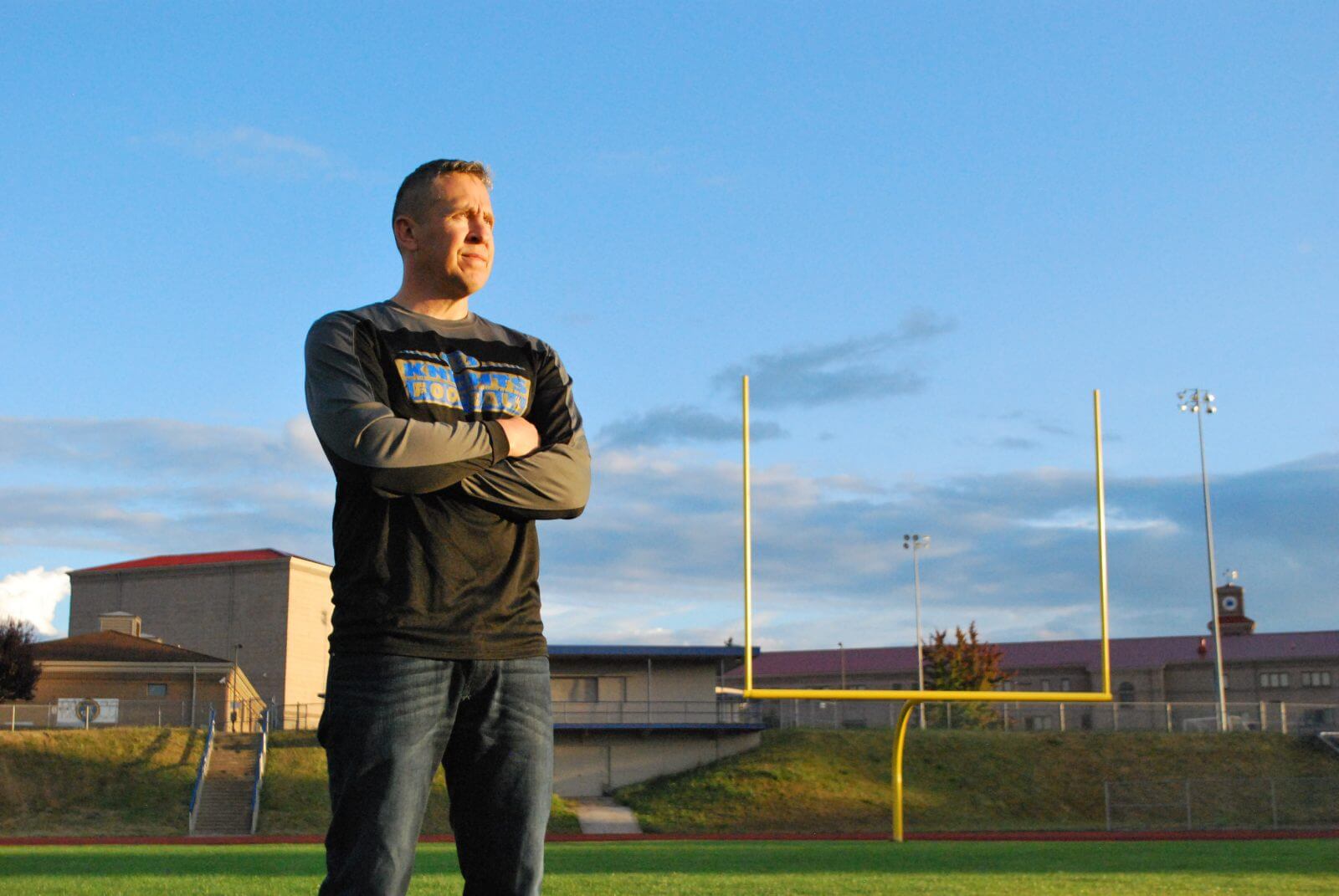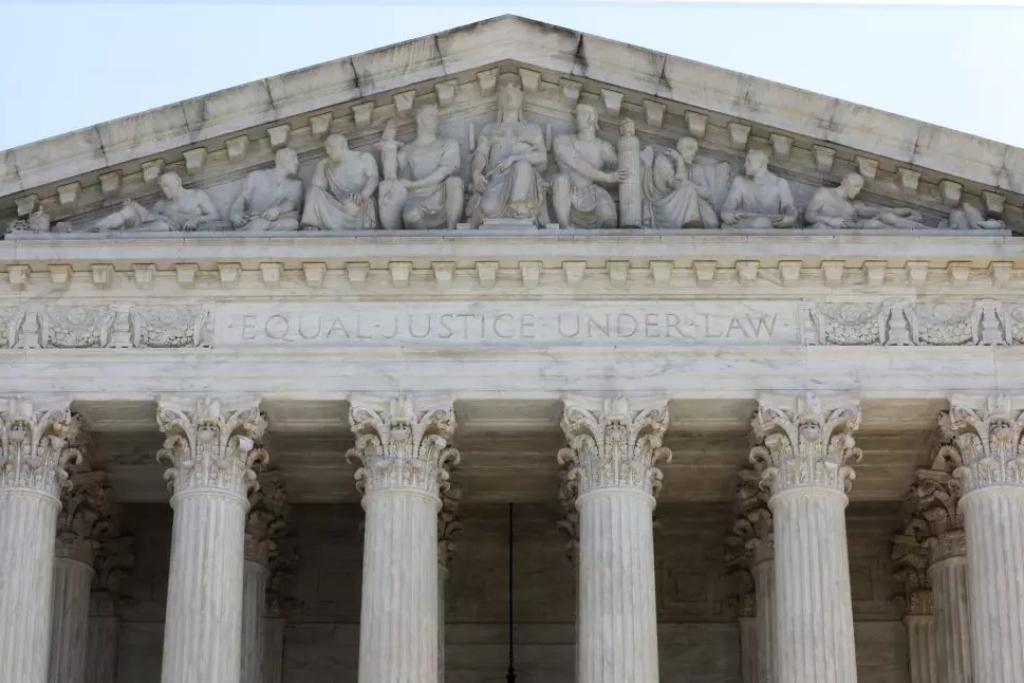
A high school football coach whose right to pray at midfield following games was upheld by the U.S. Supreme Court after he was removed from his job is to be reinstated by next spring.
In a 6-3 opinion in June, the high court ruled Joseph Kennedy did not violate the First Amendment’s ban on government establishment of religion with his post-game prayers. Instead, the justices decided the Bremerton (Wash.) School District actually violated his First Amendment rights by removing him as a coach because of its concerns that his practice infringed on the Establishment Clause.
In a joint filing Oct. 25 in state court, lawyers for Kennedy and the school district said the coach “is to be reinstated to his previous position as assistant coach of the Bremerton High School football team on or before March 15, 2023,” ABC News reported the next day.
Jeremy Dys – senior counsel for First Liberty Institute, which is representing Kennedy – confirmed the agreement in a written statement provided to Baptist Press (BP) Oct. 28:
“When the Justices of the U.S. Supreme Court determined that the Constitution approved of Coach Kennedy’s practice of praying by himself for 15-30 seconds at the 50-yard line after the games he coached, his return to the field was inevitable. Coach is eager to join his guys on the field again, which has been his goal since the school district removed him in October of 2015. We are eager to see his return on or before March 15, 2023.”
A spokeswoman for the school district told ABC News that areas remain “where there are still questions” between the sides as to how Kennedy’s prayers will be accommodated in keeping with the high court’s decision.
The Southern Baptist Ethics & Religious Liberty Commission (ERLC), which supported Kennedy in multiple friend-of-the-court briefs, welcomed the news.
“After years of litigation, Coach Kennedy will finally be reinstated and allowed to resume his important work of investing in the next generation without compromising his deeply held religious beliefs,” said Hannah Daniel, the ERLC’s policy manager.
The commission “will continue to advocate – just as we did for Coach Kennedy – for the ability of all people of all faiths to live out their beliefs in the public square without fear of harm or retribution,” she told BP in written comments.
The ERLC joined in three friend-of-the court briefs in support of Kennedy, two urging the Supreme Court to review rulings by the U.S. Ninth Circuit Court of Appeals and one in March calling for the justices to reverse the lower court. “The Establishment Clause, as properly interpreted, does not override the government’s duty to accommodate the free exercise of religion on a nondiscriminatory basis,” the March brief said.
In the court’s opinion, Associate Justice Neil Gorsuch wrote, “[A] government entity sought to punish an individual for engaging in a brief, quiet, personal religious observance doubly protected by the Free Exercise and Free Speech Clauses of the First Amendment. And the only meaningful justification the government offered for its reprisal rested on a mistaken view that it had a duty to ferret out and suppress religious observances even as it allows comparable secular speech.
“The Constitution neither mandates nor tolerates that kind of discrimination.”
Joining Gorsuch in the majority were Chief Justice John Roberts and Associate Justices Clarence Thomas, Samuel Alito, Brett Kavanaugh and Amy Coney Barrett. Associate Justice Sonia Sotomayor wrote a dissenting opinion that was endorsed by Associate Justices Stephen Breyer and Elena Kagan.
The Ninth Circuit Court in San Francisco twice ruled against Kennedy, who was ultimately joined by some players and others in the on-field prayers. In a 2021 opinion, a three-judge panel of the Ninth Circuit Court said the school district would have violated the First Amendment’s Establishment Clause had it permitted Kennedy to continue to engage in his on-field, religious exercise after games.
Kennedy’s post-game practice that led to the Supreme Court began in 2008. An assistant coach with the Bremerton High School varsity team, he began walking to the 50-yard line after each game, kneeling and briefly praying, thanking God for the players. Players eventually began joining him, and Kennedy, who was also head coach of the junior varsity team, continued to pray at midfield following games for the next seven years. He also reportedly gave motivational speeches to players on both teams who gathered around him.
“It was my covenant between me and God that after every game, win or lose, I’m going to do it right there on the field of battle,” Kennedy told ABC News earlier this year regarding his practice of post-game prayers.
“This is a right for everybody. It doesn’t matter if you’re this religion or that religion or have no faith whatsoever,” he said, according to ABC News. “Everybody has the same rights in America.”
During the 2015 season, the school district superintendent sent a letter to Kennedy telling him to refrain from the post-game prayers and from religious expression in his motivational talks to players. The superintendent said Kennedy’s practices likely violated the Establishment Clause. After abiding by the mandate for a few weeks, Kennedy returned to his former practice of praying at midfield and was joined by others.
The school district placed Kennedy on administrative leave as a result. The athletic director recommended the school not rehire him in 2016, and Kennedy declined to apply for a coaching position when a new varsity head coach was hired for the next season.
(EDITOR’S NOTE – Tom Strode is Washington bureau chief for Baptist Press.)

